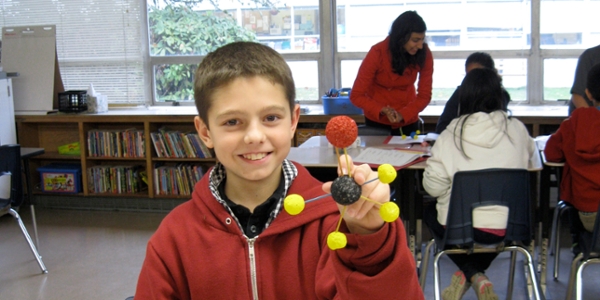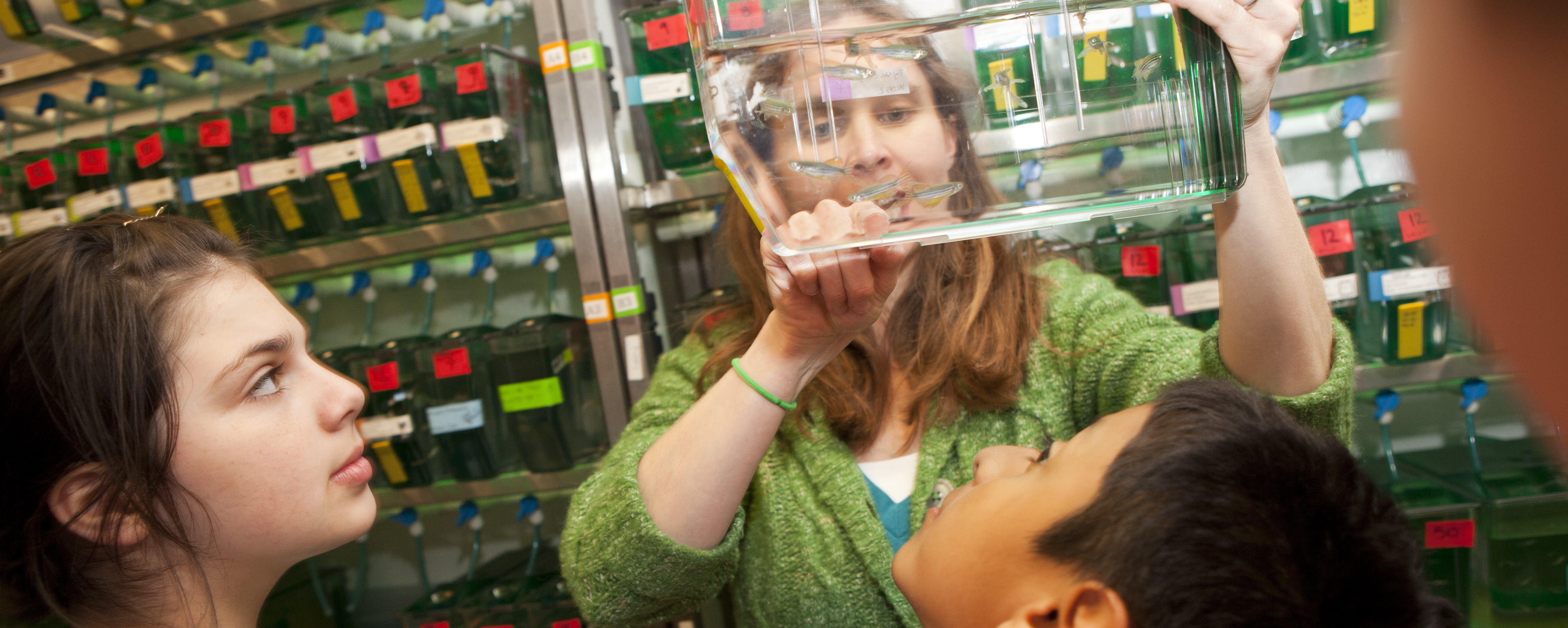
Current Curriculum
Currently, we are revised our curriculum to align with the New Generation Science Standards and Understanding by Design Unit Planning strategies. Our focus has been on physical science in relation to climate change. Over the course of the semester, our teachers explore and teach concepts such as water quality, agriculture and food systems, and earthquakes and fracking.
We have been taking science into the classroom since 1996!
View a complete list of previous units.
 Faculty
Faculty
The program was founded in 1996 by Professor Emeritus, Dr. Robert Kaplan. He continued to support and develop the program until his retirement in 2015. Faculty involvement and support continues to be an integral part of the success of the program.
Since the beginning of the program, Reed Biology professors have collaborated with the Outreach Coordinator to develop a single, or a series of, experiments designed to illustrate important and basic concepts of Biology. These experiments are the core of each unit which ultimately demonstrates that science is not dull, but an exciting exploration of interesting questions. Regardless of the topic, each unit details the scientific method and develops the theme that science is a process.
To date we have explored a number of different topics such as Plant Biology, Cell Biology, Neurobiology, Microbiology, and Amphibian Ecology. Many times the experiments used in the Outreach program are scaled down versions of concepts covered in Reed's Introductory Biology course. The Cell Biology experiments, developed by Professor's Maryanne McClellan and Steve Black, focused on proteins in cells and paramecium digestion, respectively. Professor's David Dalton and Keith Karoly created a unit called "Extreme Plants!", which examined how plants cope with stresses in the environment from water and nutrient deficiency to pollution problems.
Currently faculty continue to support the program in a variety of ways. In addition to expert support and advise, professors invite students into their labs during the annual fieldtrip to Reed, where students learn about the kinds of research that take place at the college.